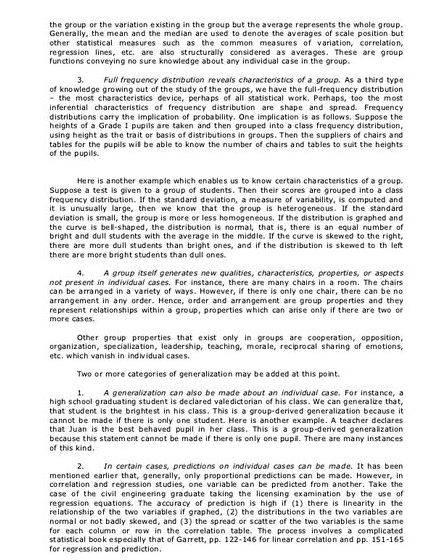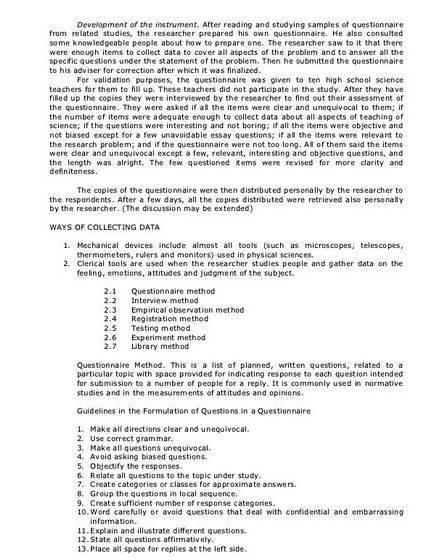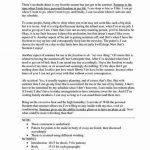An unavoidable part of the thesis-writing process is that at some point an expert in the field is going to read and assess your work.
You could be asked to defend or justify any part of your thesis&… they might point out mistakes or question the validity of your arguments&… or even ask whether the research question is one worth answering.
Naturally, the thesis defence this can be a daunting prospect, but there are things you can do during the writing process to make the future defence easier.
1. Anticipate criticism
By anticipating criticism, you can strengthen your defences against it.
What other approaches or interpretations could be made? If you acknowledge them and give a reasoned justification for why you did what you did or think what you think, then your defence is built into the thesis.
It shows that you can take an objective view of your research and have considered many options, acknowledging and addressing any weaknesses before the examiner has a chance to.
2. Try to prove yourself wrong
Be active in examining doubts, rather than letting a sense of unease sit at the back of your mind.
If you have reached a surprising conclusion, you should be the first to question whether it is true. Check and recheck your data. Try to think of alternative explanations and ways to test them. Show your work to others and get them to question it- you don’t want the defence to be the first time you get feedback on your research.
If your conclusion survives that process, then you will be able to defend it with far more confidence.
3. Be clear about what you are claiming
Make a clear statement about what you are trying to say, so that both you and the examiner know what you are defending.
This can be difficult, and sometimes you can end up writing in circles if you are unsure about what you want to say. If that’s the case, slow down and imagine someone has just asked you, &”so what are you trying to say?&”
4. Only cite literature you have read and understood
If you misrepresent someone else’s work, and the examiner notices, you could be in trouble.
Never include things just for the sake of increasing your bibliography.
5. Stick mainly to what you know
Your thesis is unique, as is your experience and expertise. Focus on what you know well (and if you need to learn something new, go and learn it before you write about it).
It’s better to bring the examiner into territory where you are strong, than to stray into weak areas because you think that’s where they want to be.
6. Focus on the work, not the outcome
It’s hard, but try not to worry about the defence too much. Instead, focus on doing the work to the best of your ability.
You cannot predict or control what an examiner will ask you. All you can do is give each section of the thesis the care and attention it deserves. If you do that, then the chances are it will work out OK.
That A VERY NICE TIPS FOR STUDENTS DOING AND WILL BE DEFENDING THEIR THESIS. GOD GUIDES.
I’ve just discovered this site and I’m very grateful to you.
I’ve encountered some problems (stress, procrastination and mostly bad treatment from my supervisor) while writing my PhD for two years now (one year of writing and one year of being totally stopped by my supervisor who &”needs more points on yearly basis for supervising me&”), so I appreciate a lot everything I read here.

Thank you!
Primary Sidebar
Stay up to date!
An unavoidable part of the thesis-writing process is that at some point an expert in the field is going to read and assess your work.
You could be asked to defend or justify any part of your thesis&… they might point out mistakes or question the validity of your arguments&… or even ask whether the research question is one worth answering.
Naturally, the thesis defence this can be a daunting prospect, but there are things you can do during the writing process to make the future defence easier.
1. Anticipate criticism
By anticipating criticism, you can strengthen your defences against it.
What other approaches or interpretations could be made? If you acknowledge them and give a reasoned justification for why you did what you did or think what you think, then your defence is built into the thesis.
It shows that you can take an objective view of your research and have considered many options, acknowledging and addressing any weaknesses before the examiner has a chance to.
2. Try to prove yourself wrong
Be active in examining doubts, rather than letting a sense of unease sit at the back of your mind.
If you have reached a surprising conclusion, you should be the first to question whether it is true. Check and recheck your data. Try to think of alternative explanations and ways to test them. Show your work to others and get them to question it- you don’t want the defence to be the first time you get feedback on your research.
If your conclusion survives that process, then you will be able to defend it with far more confidence.
3. Be clear about what you are claiming
Make a clear statement about what you are trying to say, so that both you and the examiner know what you are defending.
This can be difficult, and sometimes you can end up writing in circles if you are unsure about what you want to say. If that’s the case, slow down and imagine someone has just asked you, &”so what are you trying to say?&”
4. Only cite literature you have read and understood
If you misrepresent someone else’s work, and the examiner notices, you could be in trouble.
Never include things just for the sake of increasing your bibliography.
5. Stick mainly to what you know
Your thesis is unique, as is your experience and expertise. Focus on what you know well (and if you need to learn something new, go and learn it before you write about it).
It’s better to bring the examiner into territory where you are strong, than to stray into weak areas because you think that’s where they want to be.
6. Focus on the work, not the outcome
It’s hard, but try not to worry about the defence too much. Instead, focus on doing the work to the best of your ability.
You cannot predict or control what an examiner will ask you. All you can do is give each section of the thesis the care and attention it deserves. If you do that, then the chances are it will work out OK.
That A VERY NICE TIPS FOR STUDENTS DOING AND WILL BE DEFENDING THEIR THESIS. GOD GUIDES.
I’ve just discovered this site and I’m very grateful to you.
I’ve encountered some problems (stress, procrastination and mostly bad treatment from my supervisor) while writing my PhD for two years now (one year of writing and one year of being totally stopped by my supervisor who &”needs more points on yearly basis for supervising me&”), so I appreciate a lot everything I read here. Thank you!
Primary Sidebar
Stay up to date!






 Steps in writing a thesis
Steps in writing a thesis The yellow ribbon by pete hamill thesis proposal
The yellow ribbon by pete hamill thesis proposal Two views of the mississippi thesis writing
Two views of the mississippi thesis writing The great depression essay thesis writing
The great depression essay thesis writing Masters thesis proposal presentation ppt slides
Masters thesis proposal presentation ppt slides






